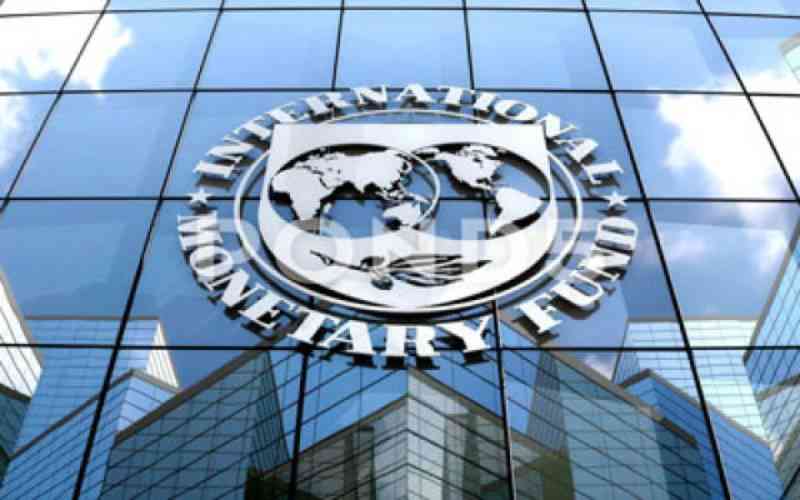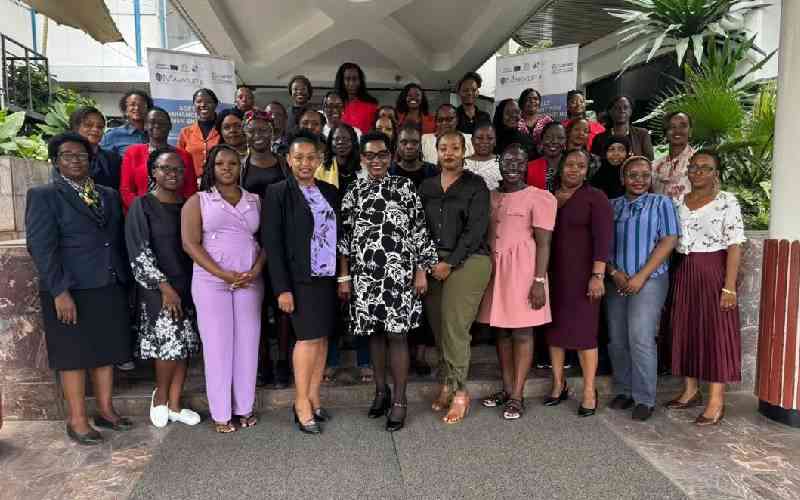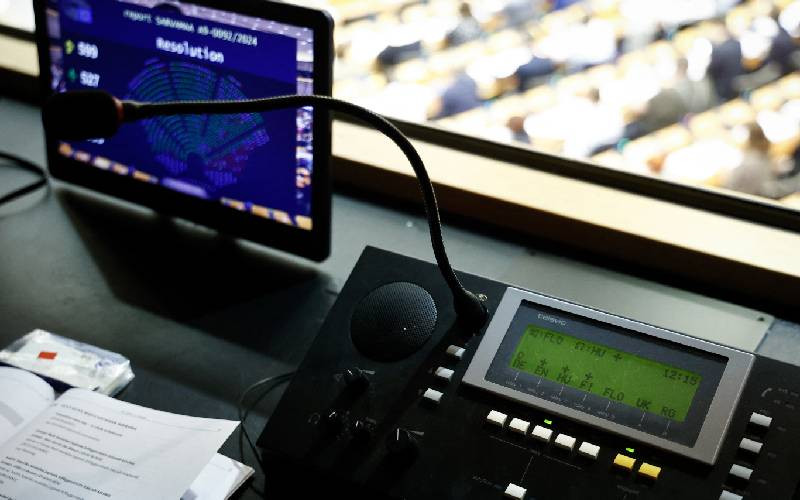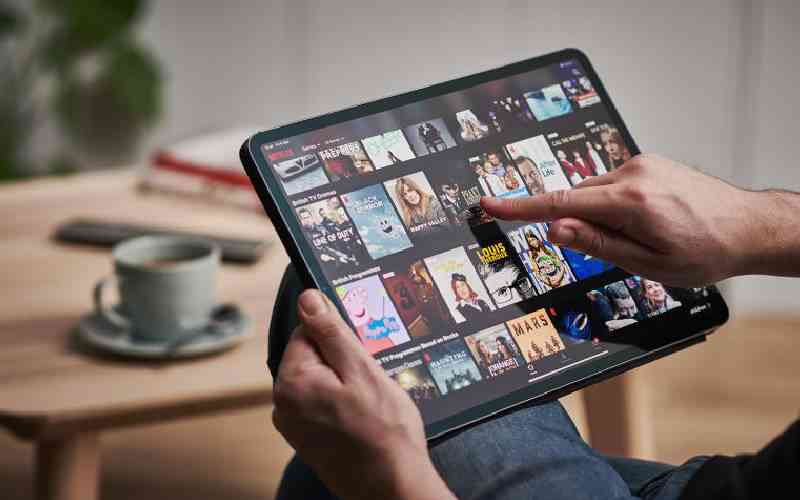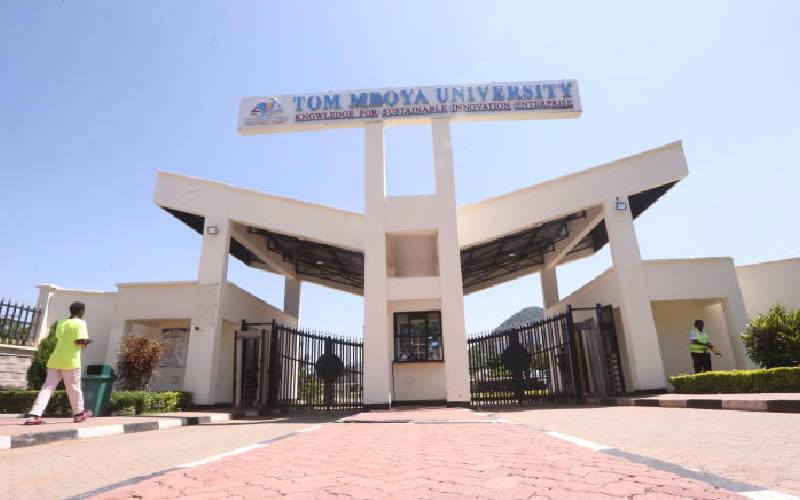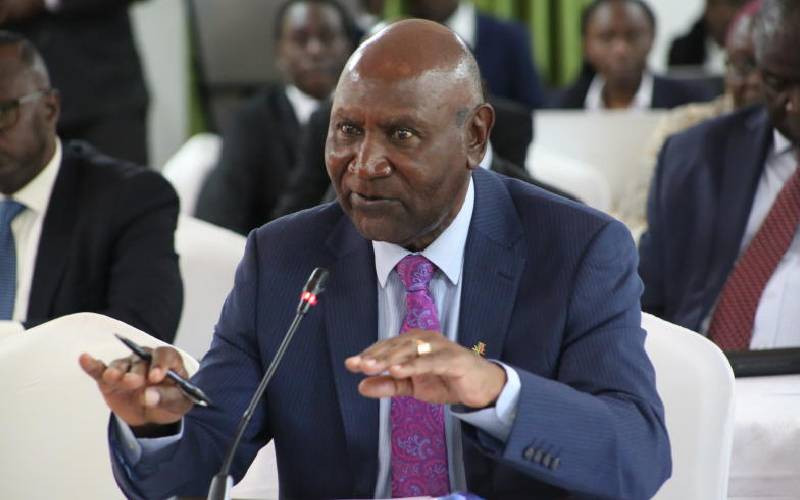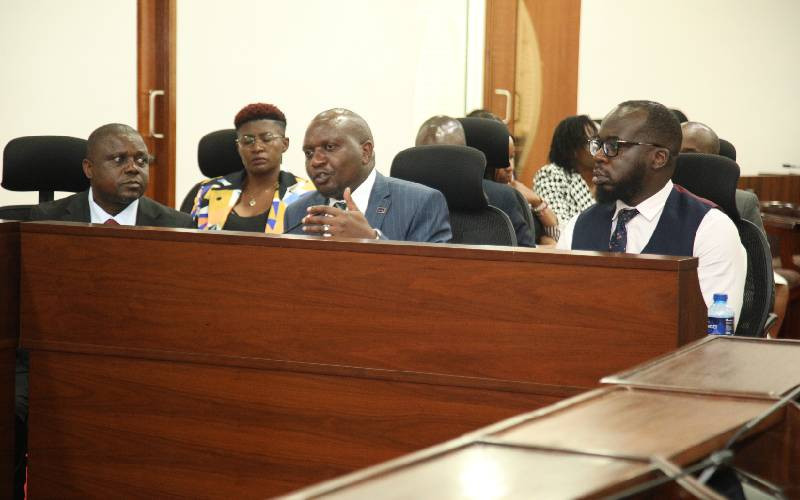
Media Council of Kenya CEO David Omwoyo (centre) before the National Assembly Committee on Communication, Information and Innovation, in Nairobi, on September 23, 2025. [Elvis Ogina, Standard
The Media Council of Kenya (MCK) is seeking a Sh1.5 billion artificial intelligence (AI) powered system even as Parliament called for a home-grown solution.
MCK Chief Executive Officer David Omwoyo on Tuesday said that after a court declaration of sections of the Kenya Information and Communications Act and Communication Authority’s Broadcasting Code unconstitutional, they had consolidated MCK as the sole statutory regulator of media.
This, he said, increases the council’s responsibilities and the public’s reliance on its oversight, especially as the country heads to the 2027 General Election.
Omwoyo noted the need for enhanced monitoring and enforcement functions, failure to which there would be a significant gap in regulatory oversight, potentially leading to a decline in ethical standards and erosion of public trust.
“Having been given by the High Court the entire broadcast content monitoring, we will be asking that the committee helps us to acquire a modern monitoring system, which is AI powered because we have more than 500 broadcasters in a couple of different languages,” he said.
Appearing before the National Assembly Committee on Communication, Information and Innovation, Omwoyo cited the recent report from the Broadcasting and Content Licensing Board identifying non-compliant media enterprises, some of which he said are not within the MCK’s monitoring scope.
“This critical gap necessitates an urgent and strategic investment in an advanced media monitoring system capable of comprehensive and real-time coverage to ensure no licensed entity operates outside our ethical oversight,” he said.
Committee chairman John Kiarie, however, challenged MCK to consider adopting local monitoring system, saying it would also provide opportunities.
“Instead of spending Sh1.5 billion to buy a system, could this be an opportunity to develop homegrown solution. We may import technology and may not be fit for purpose; it can be done locally and even as we consider you for supplementary, we see what can be done locally,” said the Dagoretti South MP.
At the same time, MCK told the committee it had accredited 9,023 journalists and media practitioners in 2024/2025, out of which 4,771 are men and 4,252 women. Local journalists are 8,827 and rest foreign nationals.
He said there are at least 2,000 fresh journalism graduates every year, but the market could only absorb about 200.
“We are doing a comprehensive study to see how the market looks. We have a saturated market - the content producers, the professionals. The Media Council is not the licensing entity, we only monitor those that have been licensed,” said Omwoyo.
MCK said it had recorded 37 breach incidents from January, and issued 14 show-cause notices, eight of which have been responded to.
Stay informed. Subscribe to our newsletter
The council said it had documented 84 cases of press freedom violation between January and September across the country.
The included 56 cases of journalists being physically assaulted especially during anti-government protests and political events, 16 incidents of intimidation and threats, censorship and denial of access to information in eight cases, three arrests and one abduction.
Noting that digital migration had effected the sector, Omwoyo told the committee that of the more than 250 TV stations and a similar number of radio stations, less than 10 per cent are operating optimally while 90 per cent of the media houses cannot meet their basic obligations.
